I recently discovered many states and Canadian provinces offer naturalist training and volunteer opportunities. Normally run by a university’s School of Forestry and State Cooperative Extension Service, these entities provide training that can be as short as 24 hours to 90 hours or more to become a Master Naturalist. While these initial classes are a great start; you will obviously learn more as you get more involved, not to mention have the resource of your peers, university professors, extension agents, department of natural resources, and/or more depending on your local. I am sharing this information with you as it should be fantastic resource, and as a reader of Master Woodsman, I know you will have a tremendous amount to offer these programs as well.
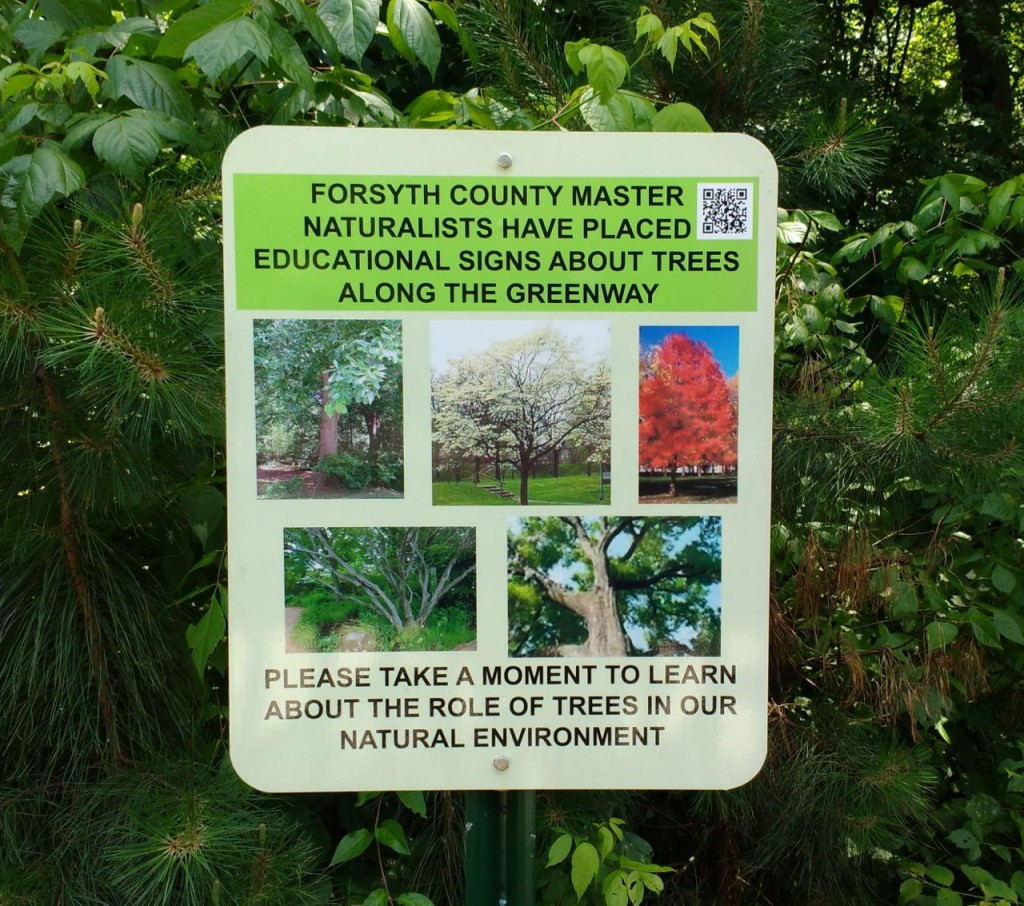 For me personally, the University of Georgia School of Forestry and Natural Resources in conjunction with the Cooperative Extension Service offers a Master Naturalist Program of which I recently completed. The purpose, in Georgia as an example, is to be more informed about habitats, natural resources and the natural environments of the state. Becoming a trained steward, provides an excellent avenue for outreach, environmental monitoring, community projects and more. Topics and ongoing resources include geology, hydrology, ecological principals, water quality, native plants, forestry, wildlife, ornithology, agriculture, urban forestry and environmental awareness.
For me personally, the University of Georgia School of Forestry and Natural Resources in conjunction with the Cooperative Extension Service offers a Master Naturalist Program of which I recently completed. The purpose, in Georgia as an example, is to be more informed about habitats, natural resources and the natural environments of the state. Becoming a trained steward, provides an excellent avenue for outreach, environmental monitoring, community projects and more. Topics and ongoing resources include geology, hydrology, ecological principals, water quality, native plants, forestry, wildlife, ornithology, agriculture, urban forestry and environmental awareness.
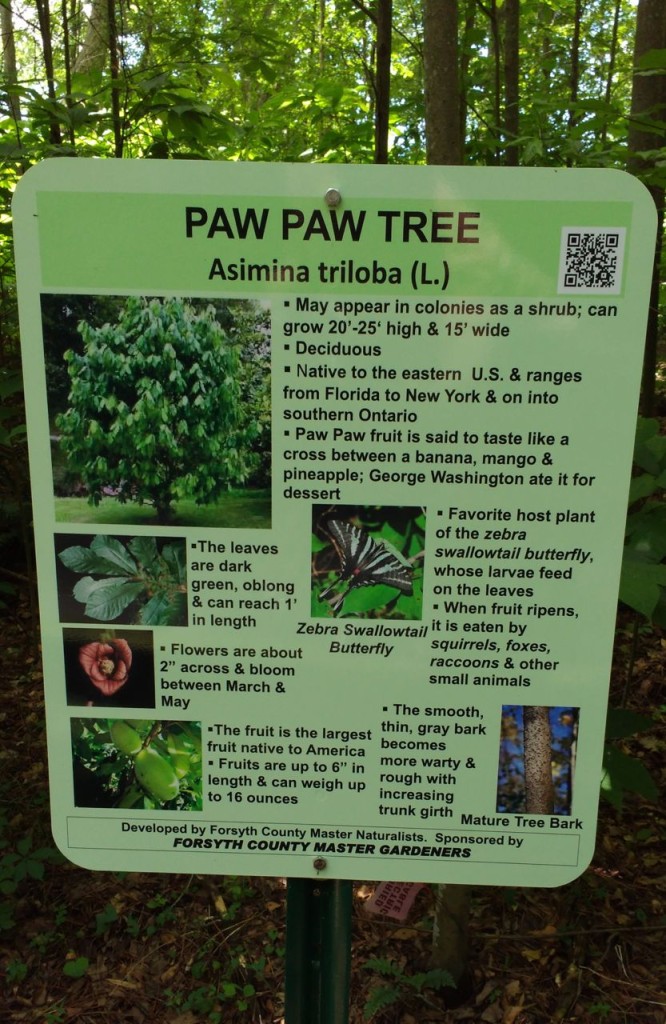 Yours truly will be volunteering his time teaching other Master Naturalists tree and plant ID, frog monitoring, and tree identification for a local greenway project over the next few months alone. Stream monitoring may fit in somewhere too as we also became certified as part of the program. These are just a few examples for me and I know there will be many other projects coming. Finally, I can’t say enough about what a pleasure it has been working with others that have similar interests.
Yours truly will be volunteering his time teaching other Master Naturalists tree and plant ID, frog monitoring, and tree identification for a local greenway project over the next few months alone. Stream monitoring may fit in somewhere too as we also became certified as part of the program. These are just a few examples for me and I know there will be many other projects coming. Finally, I can’t say enough about what a pleasure it has been working with others that have similar interests.
Here is the list of states and in Canada where I could find Master Naturalist programs. If you have any suggestions, edits, etc., please let me know.
 Alabama Master Naturalist Program – The Alabama Master Naturalist program is a new statewide program whose goal is to help promote awareness, understanding, and respect of Alabama’s natural world among Alabama’s citizens and visitors. In addition, the AMN program will also develop a statewide corps of well-informed volunteers providing education, outreach, and service dedicated to the beneficial management of natural resources and natural areas within their communities.
Alabama Master Naturalist Program – The Alabama Master Naturalist program is a new statewide program whose goal is to help promote awareness, understanding, and respect of Alabama’s natural world among Alabama’s citizens and visitors. In addition, the AMN program will also develop a statewide corps of well-informed volunteers providing education, outreach, and service dedicated to the beneficial management of natural resources and natural areas within their communities.
 Arizona Master Naturalist Program – The mission is to establish and maintain a corps of well-informed volunteers to deliver quality environmental education programs and promote stewardship of Arizona’s natural environment. To accomplish this mission, four goals have been established: (1) Develop a better-informed public and greater citizen participation in decision making processes pertaining to the natural resources of our region. (2) Increase volunteer pool for environmental education programs. (3) Train a pool of volunteer naturalists to further environmental education in Northern Arizona. (4) Have a fun and enriching experience in the attainment of personal growth and lifelong learning. To accomplish these goals, the UA Cooperative Extension Service Educational Specialist has established a 9-week Master Naturalist training sequence of classroom work and field work. In Northern Arizona, the program is fortunate to be able to draw from numerous academic and agency resources for speakers and trainers. The program requires candidates to make presentations, maintain a log of volunteer hours, and attend monthly continuing education classes.
Arizona Master Naturalist Program – The mission is to establish and maintain a corps of well-informed volunteers to deliver quality environmental education programs and promote stewardship of Arizona’s natural environment. To accomplish this mission, four goals have been established: (1) Develop a better-informed public and greater citizen participation in decision making processes pertaining to the natural resources of our region. (2) Increase volunteer pool for environmental education programs. (3) Train a pool of volunteer naturalists to further environmental education in Northern Arizona. (4) Have a fun and enriching experience in the attainment of personal growth and lifelong learning. To accomplish these goals, the UA Cooperative Extension Service Educational Specialist has established a 9-week Master Naturalist training sequence of classroom work and field work. In Northern Arizona, the program is fortunate to be able to draw from numerous academic and agency resources for speakers and trainers. The program requires candidates to make presentations, maintain a log of volunteer hours, and attend monthly continuing education classes.
 Arkansas Master Naturalists – To develop a corps of well-informed volunteers to provide education, outreach, and service dedicated to the beneficial management of natural resources and natural areas within their communities. (nice website!)
Arkansas Master Naturalists – To develop a corps of well-informed volunteers to provide education, outreach, and service dedicated to the beneficial management of natural resources and natural areas within their communities. (nice website!)
 Colorado – Naturalist Training through the Audubon Society consists of 90 hours of classroom and field training. We bring in field experts to teach classes on: Ecosystems, Ecology, Geology, Plants, Insects, Reptiles, Amphibians, Bird & Raptor Identification, Mammals and Interpretive Guide Techniques. This training prepares people of all experience levels to become naturalists for our public and/or school environmental education programs. In addition, the City of Fort Collins offers a Master Naturalist Program.
Colorado – Naturalist Training through the Audubon Society consists of 90 hours of classroom and field training. We bring in field experts to teach classes on: Ecosystems, Ecology, Geology, Plants, Insects, Reptiles, Amphibians, Bird & Raptor Identification, Mammals and Interpretive Guide Techniques. This training prepares people of all experience levels to become naturalists for our public and/or school environmental education programs. In addition, the City of Fort Collins offers a Master Naturalist Program.
 Connecticut – Programs through the Audubon Society and Friends of the Goodwin Forest. Through this program, participants will learn about the ecosystems of Connecticut, the animals and plants that inhabit our area, and current conservation issues affecting our wildlife and natural resources. The program includes a mix of indoor classroom presentations and outdoor hands-on field sessions where participants learn to identify, interpret, and understand key ecological Connecticut’s natural resources through education and service. Participants completing the Level I course will become “Apprentice Naturalists”, and no further training is required. Individuals interested in becoming a “Master Naturalist” may go on to complete the Level II course.
Connecticut – Programs through the Audubon Society and Friends of the Goodwin Forest. Through this program, participants will learn about the ecosystems of Connecticut, the animals and plants that inhabit our area, and current conservation issues affecting our wildlife and natural resources. The program includes a mix of indoor classroom presentations and outdoor hands-on field sessions where participants learn to identify, interpret, and understand key ecological Connecticut’s natural resources through education and service. Participants completing the Level I course will become “Apprentice Naturalists”, and no further training is required. Individuals interested in becoming a “Master Naturalist” may go on to complete the Level II course.
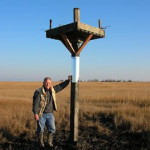 Delaware Naturalist Volunteer Program – This exciting program provides training and incentives for volunteers. The program’s mission is to educate and train citizens throughout the state to serve as volunteers in environmental education; monitoring, restoration, conservation and protection of Delaware’s natural resources. Volunteer opportunities include aquatic education, wildlife surveys, tree planting, native seed collection and more!
Delaware Naturalist Volunteer Program – This exciting program provides training and incentives for volunteers. The program’s mission is to educate and train citizens throughout the state to serve as volunteers in environmental education; monitoring, restoration, conservation and protection of Delaware’s natural resources. Volunteer opportunities include aquatic education, wildlife surveys, tree planting, native seed collection and more!
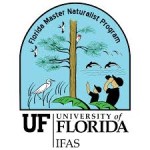 Florida Master Naturalist Program – The Florida Master Naturalist Program is an adult education UF/IFAS Extension program developed by the University of Florida and provided by many Extension offices and participating organizations throughout the state of Florida. FMNP training will benefit persons interested in learning more about Florida’s environment or wishing to increase their knowledge for use in education programs as volunteers, employees, ecotourism guides, and others.
Florida Master Naturalist Program – The Florida Master Naturalist Program is an adult education UF/IFAS Extension program developed by the University of Florida and provided by many Extension offices and participating organizations throughout the state of Florida. FMNP training will benefit persons interested in learning more about Florida’s environment or wishing to increase their knowledge for use in education programs as volunteers, employees, ecotourism guides, and others.
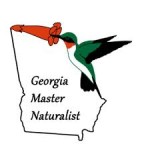 Georgia Master Naturalist Program – An Adult Environmental Education course developed by the UGA Cooperative Extension Service and the UGA Warnell School of Forestry & Natural Resources for people who wish to be more informed about habitats, natural resources and the natural environments of our state. The mission of the Georgia Master Naturalist program is to provide unbiased, scientifically accurate information about environmental issues for adults.
Georgia Master Naturalist Program – An Adult Environmental Education course developed by the UGA Cooperative Extension Service and the UGA Warnell School of Forestry & Natural Resources for people who wish to be more informed about habitats, natural resources and the natural environments of our state. The mission of the Georgia Master Naturalist program is to provide unbiased, scientifically accurate information about environmental issues for adults.
![]() Hawaii Master Naturalist – The Advanced Naturalist Training Series (ANTS) was created to advocate for Naturalists in the state of Hawai’i, where thousands of people live and work with nature every day. People contribute their time and financial resources to conserve and protect the land, the ocean, and the plants and animals that make Hawai’i such a unique place in the middle of the Pacific Ocean.
Hawaii Master Naturalist – The Advanced Naturalist Training Series (ANTS) was created to advocate for Naturalists in the state of Hawai’i, where thousands of people live and work with nature every day. People contribute their time and financial resources to conserve and protect the land, the ocean, and the plants and animals that make Hawai’i such a unique place in the middle of the Pacific Ocean.
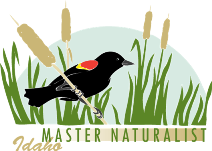 Idaho Master Naturalist Program – please see website for chapter locations and details for this highly active program. Chapter locations include: Boise, Ketchum, McCall, Idaho Falls, Lewiston, Sand Point, Island Park, and Salmon.
Idaho Master Naturalist Program – please see website for chapter locations and details for this highly active program. Chapter locations include: Boise, Ketchum, McCall, Idaho Falls, Lewiston, Sand Point, Island Park, and Salmon.
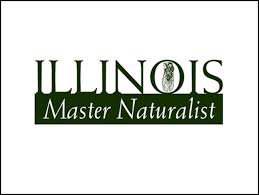 Illinois Master Naturalist – The mission of the University of Illinois Extension Master Naturalist Program is to provide science-based educational opportunities that connect people with nature and help them become engaged environmental stewards. The program educates and trains adult volunteers so they are better equipped to share natural resource information with others in their communities; and to assist with environmental conservation and restoration activities. We all have a responsibility to protect the natural resources in the places where we live in order to ensure our world is “fit for the future.” The University of Illinois Extension partners with local agencies to accomplish the Master Naturalist mission.
Illinois Master Naturalist – The mission of the University of Illinois Extension Master Naturalist Program is to provide science-based educational opportunities that connect people with nature and help them become engaged environmental stewards. The program educates and trains adult volunteers so they are better equipped to share natural resource information with others in their communities; and to assist with environmental conservation and restoration activities. We all have a responsibility to protect the natural resources in the places where we live in order to ensure our world is “fit for the future.” The University of Illinois Extension partners with local agencies to accomplish the Master Naturalist mission.
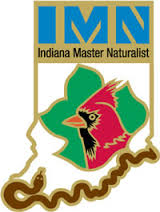 Indiana Master Naturalist Program – The Indiana Master Naturalist program can provide you with many hands-on opportunities to learn about our Hoosier natural resources. It also provides a way for you to share that knowledge, along with your life experiences, through volunteer service. The program is sponsored by the Resource Conservation & Development Councils, Indiana Soil & Water Conservation Districts, Purdue Cooperative Extension Service and Indiana Department of Natural Resources.
Indiana Master Naturalist Program – The Indiana Master Naturalist program can provide you with many hands-on opportunities to learn about our Hoosier natural resources. It also provides a way for you to share that knowledge, along with your life experiences, through volunteer service. The program is sponsored by the Resource Conservation & Development Councils, Indiana Soil & Water Conservation Districts, Purdue Cooperative Extension Service and Indiana Department of Natural Resources.
![]() Iowa Master Conservationist – The Master Conservationist Program is offered by Extension Wildlife Programs. It is a volunteer program developed to give you the information necessary to make informed decisions about your natural resources. To become a Master Conservationist you need to: have an interest in conservation and environmental issues and concerns; attend at least 32 hours of hands-on training sessions; provide at least 32 hours of volunteer efforts, and have a willingness to learn and share ideas with others. Copy/paste this link: www.extension.iastate.edu/mcp/
Iowa Master Conservationist – The Master Conservationist Program is offered by Extension Wildlife Programs. It is a volunteer program developed to give you the information necessary to make informed decisions about your natural resources. To become a Master Conservationist you need to: have an interest in conservation and environmental issues and concerns; attend at least 32 hours of hands-on training sessions; provide at least 32 hours of volunteer efforts, and have a willingness to learn and share ideas with others. Copy/paste this link: www.extension.iastate.edu/mcp/
 Kansas Master Naturalist – The mission of the Kansas Master Naturalist program is to develop knowledgeable and dedicated citizens who are active in promoting awareness, understanding, and stewardship of the natural heritage of Kansas. The first Kansas Master Naturalists program was started in south-central Kansas (Wichita/Hutchinson) in the spring of 2011. As of spring 2013 we now have 3 chapters up and running.
Kansas Master Naturalist – The mission of the Kansas Master Naturalist program is to develop knowledgeable and dedicated citizens who are active in promoting awareness, understanding, and stewardship of the natural heritage of Kansas. The first Kansas Master Naturalists program was started in south-central Kansas (Wichita/Hutchinson) in the spring of 2011. As of spring 2013 we now have 3 chapters up and running.
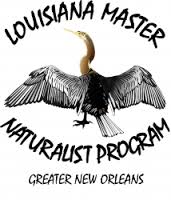 Louisiana Master Naturalist Program – The Louisiana Master Naturalist Program is an opportunity for citizens to expand or sharpen their skills in natural history, with special focus on the diverse habitats of the Sportsman’s Paradise – Louisiana. With Natchitoches being the state’s oldest city (1714) and New Orleans one of the earliest major ports in the U.S. (1718), Louisiana has played a pivotal role in our knowledge of the flora and fauna of North America. Naturalists arrived on many of the earliest ships and sent specimens of species then new to science back to the museums of the Old World. Most of the early natural historians traveled Louisiana’s byways, as demonstrated by John James Audubon’s many contributions to our knowledge of early 1800s biota. We encourage you to enter the LMNP certification program and contribute to the well being and expanding knowledge-base in natural history in Louisiana. The Master Naturalist Program, through its various chapters, will enable you to learn about the nature of the state’s varied physiographic regions, and help you understand the connections among our valued environment, culture, and economy.
Louisiana Master Naturalist Program – The Louisiana Master Naturalist Program is an opportunity for citizens to expand or sharpen their skills in natural history, with special focus on the diverse habitats of the Sportsman’s Paradise – Louisiana. With Natchitoches being the state’s oldest city (1714) and New Orleans one of the earliest major ports in the U.S. (1718), Louisiana has played a pivotal role in our knowledge of the flora and fauna of North America. Naturalists arrived on many of the earliest ships and sent specimens of species then new to science back to the museums of the Old World. Most of the early natural historians traveled Louisiana’s byways, as demonstrated by John James Audubon’s many contributions to our knowledge of early 1800s biota. We encourage you to enter the LMNP certification program and contribute to the well being and expanding knowledge-base in natural history in Louisiana. The Master Naturalist Program, through its various chapters, will enable you to learn about the nature of the state’s varied physiographic regions, and help you understand the connections among our valued environment, culture, and economy.
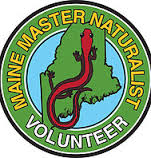 Maine Master Naturalist Program – Maine Naturalist, Tier One: In this course, students will learn how to use keys to identify forbs (wildflowers and shrubs), trees, ferns, insect orders and mammal skulls (as a way of understanding behavior and food procurement). Students will also develop bird-watching skills; study one natural landscape near the course site; and volunteer 20 hours during the course at an approved non-profit or school. The curriculum and teaching will adhere to the high level found in MMNP’s year-long program. Graduates will be Maine Associate Naturalists. One Tier One course, in Blue Hill, will be offered in 2015; tuition is $300.
Maine Master Naturalist Program – Maine Naturalist, Tier One: In this course, students will learn how to use keys to identify forbs (wildflowers and shrubs), trees, ferns, insect orders and mammal skulls (as a way of understanding behavior and food procurement). Students will also develop bird-watching skills; study one natural landscape near the course site; and volunteer 20 hours during the course at an approved non-profit or school. The curriculum and teaching will adhere to the high level found in MMNP’s year-long program. Graduates will be Maine Associate Naturalists. One Tier One course, in Blue Hill, will be offered in 2015; tuition is $300.
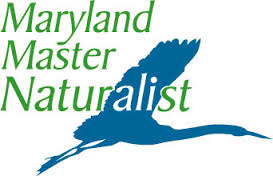 Maryland Master Naturalist – Want to be a Master Naturalist? Instruction is specific to one of three physiographic regions in Maryland: the Coastal Plain, Piedmont, or Mountain Region. The course fee is $250 per person. Individuals interested in becoming a Master Naturalist apply to a Host Site in their region (see sidebar at right). Once you’re accepted into the Master Naturalist volunteer training program, you will receive 52 hours of classroom instruction and 8 hours of hands-on experience outdoors (60 hours total training).
Maryland Master Naturalist – Want to be a Master Naturalist? Instruction is specific to one of three physiographic regions in Maryland: the Coastal Plain, Piedmont, or Mountain Region. The course fee is $250 per person. Individuals interested in becoming a Master Naturalist apply to a Host Site in their region (see sidebar at right). Once you’re accepted into the Master Naturalist volunteer training program, you will receive 52 hours of classroom instruction and 8 hours of hands-on experience outdoors (60 hours total training).
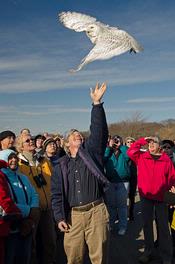 Massachusetts Master Naturalist – “If you build they will come!” This is the mantra that undergirds the new Master Naturalist Program at Parker River Naitonal Wildlife Refuge (NWR). One of the most visited refuges in Region 5, the visitor services staff at Parker River is hoping to grow its capacity to develop and deliver public programming by spending the next year building a core of well trained volunteer docents. That’s the purpose of the Master Naturalist program. Copy/paste this link: http://www.fws.gov/fieldnotes/regmap.cfm?arskey=31513
Massachusetts Master Naturalist – “If you build they will come!” This is the mantra that undergirds the new Master Naturalist Program at Parker River Naitonal Wildlife Refuge (NWR). One of the most visited refuges in Region 5, the visitor services staff at Parker River is hoping to grow its capacity to develop and deliver public programming by spending the next year building a core of well trained volunteer docents. That’s the purpose of the Master Naturalist program. Copy/paste this link: http://www.fws.gov/fieldnotes/regmap.cfm?arskey=31513
 Michigan Master Naturalist – This program is open to anyone who has an interest in the great out of doors! Participants in the “Master Naturalist” program will gain a great understanding of the natural environment and conservation techniques while learning the native flora.
Michigan Master Naturalist – This program is open to anyone who has an interest in the great out of doors! Participants in the “Master Naturalist” program will gain a great understanding of the natural environment and conservation techniques while learning the native flora.
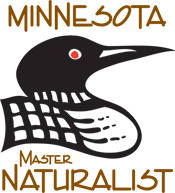 Minnesota Master Naturalist Program – The mission of the Minnesota Master Naturalist Program is to promote awareness, understanding, and stewardship of Minnesota’s natural environment by developing a corps of well-informed citizens dedicated to conservation education and service within their communities. Any adult who is curious and enjoys learning about the natural world, shares that knowledge with others, and supports conservation can be a Minnesota Master Naturalist Volunteer. If you enjoy hiking, bird watching, following tracks, or identifying wildflowers, you’ll love being a Minnesota Master Naturalist Volunteer. Minnesota Master Naturalist Volunteers are a motivated group of fun and interesting people: teachers, retired professionals, nature guides, hunters, eco-tour operators, farmers, and…YOU!
Minnesota Master Naturalist Program – The mission of the Minnesota Master Naturalist Program is to promote awareness, understanding, and stewardship of Minnesota’s natural environment by developing a corps of well-informed citizens dedicated to conservation education and service within their communities. Any adult who is curious and enjoys learning about the natural world, shares that knowledge with others, and supports conservation can be a Minnesota Master Naturalist Volunteer. If you enjoy hiking, bird watching, following tracks, or identifying wildflowers, you’ll love being a Minnesota Master Naturalist Volunteer. Minnesota Master Naturalist Volunteers are a motivated group of fun and interesting people: teachers, retired professionals, nature guides, hunters, eco-tour operators, farmers, and…YOU!
 Mississippi Master Naturalist Program – A Master Naturalist is a concerned citizen who wants to learn more about Mississippi’s natural resources and management tools that can be used to help protect our land and water resources. Master Naturalist Certification Requirements: A Master Naturalist will receive 40 hours of in-depth training in natural resource and wildlife management. This information will be taught by regional experts at the Mississippi State University Coastal Research and Extension Center with field trips to discover and learn more about south Mississippi’s wildlife and natural habitats. Master Naturalist volunteers will promote environmental stewardship within their community through conducting educational activities, projects, and demonstrations. An additional 40 hours of volunteer service is required to obtain certification in the program.
Mississippi Master Naturalist Program – A Master Naturalist is a concerned citizen who wants to learn more about Mississippi’s natural resources and management tools that can be used to help protect our land and water resources. Master Naturalist Certification Requirements: A Master Naturalist will receive 40 hours of in-depth training in natural resource and wildlife management. This information will be taught by regional experts at the Mississippi State University Coastal Research and Extension Center with field trips to discover and learn more about south Mississippi’s wildlife and natural habitats. Master Naturalist volunteers will promote environmental stewardship within their community through conducting educational activities, projects, and demonstrations. An additional 40 hours of volunteer service is required to obtain certification in the program.
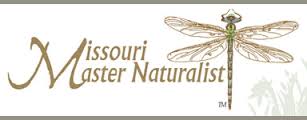 Missouri Master Naturalist – The Missouri Master Naturalist™ program is a community-based natural resource education and volunteer service program for adults, sponsored by the Missouri Department of Conservation and the University of Missouri Extension. The mission is to engage Missourians in the stewardship of our state’s natural resources through science-based education and volunteer community service. Missouri Master Naturalist volunteers support conservation efforts and natural resource education in their local communities.
Missouri Master Naturalist – The Missouri Master Naturalist™ program is a community-based natural resource education and volunteer service program for adults, sponsored by the Missouri Department of Conservation and the University of Missouri Extension. The mission is to engage Missourians in the stewardship of our state’s natural resources through science-based education and volunteer community service. Missouri Master Naturalist volunteers support conservation efforts and natural resource education in their local communities.
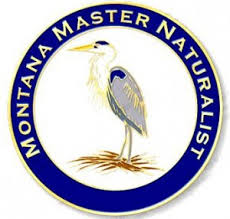 Montana Master Naturalist Program – The Montana Master Naturalist Program is designed for adults who want to stoke their curiosity and deepen their knowledge of the natural world. We offer a range of programs to fit the needs of a diverse community, but all the classes share a common goal of providing participants with the skills to interpret the Montana landscape. The core class is the Master Naturalist Certification course, which we offer in spring, summer, and fall, in slightly different formats. But we also offer focused, intensive field weekends, and field days on additional topics.
Montana Master Naturalist Program – The Montana Master Naturalist Program is designed for adults who want to stoke their curiosity and deepen their knowledge of the natural world. We offer a range of programs to fit the needs of a diverse community, but all the classes share a common goal of providing participants with the skills to interpret the Montana landscape. The core class is the Master Naturalist Certification course, which we offer in spring, summer, and fall, in slightly different formats. But we also offer focused, intensive field weekends, and field days on additional topics.
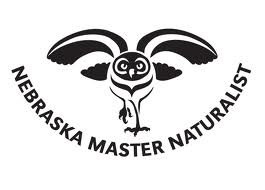 Nebraska Master Naturalist Program – Get up close and personal with Nebraska’s natural resources! Participants in the Nebraska Master Naturalist Program will engage in nearly 60 hours of in-depth training, led by experts in their fields. Learn about Nebraska’s ecosystems, plants and animals, conservation biology, and so much more! Explore Nebraska alongside scientists, faculty, and natural resource professionals. Contribute your time and expertise through exciting volunteer opportunities in habitat conservation, environmental education, citizen science, and more. Most importantly, connect with Nebraskans who share your passion for nature. The Master Naturalist Program is open to any Nebraskan age 19 and up with the desire to explore Nebraska’s natural resources. The first step in the process is the application. The registration process is first-come, first-served, so get your applications in soon! Registration fees begin at $150 for the initial, basic training bloc, and help us defray the training costs in support of the program. We are currently accepting applications for the 2015 training sessions.
Nebraska Master Naturalist Program – Get up close and personal with Nebraska’s natural resources! Participants in the Nebraska Master Naturalist Program will engage in nearly 60 hours of in-depth training, led by experts in their fields. Learn about Nebraska’s ecosystems, plants and animals, conservation biology, and so much more! Explore Nebraska alongside scientists, faculty, and natural resource professionals. Contribute your time and expertise through exciting volunteer opportunities in habitat conservation, environmental education, citizen science, and more. Most importantly, connect with Nebraskans who share your passion for nature. The Master Naturalist Program is open to any Nebraskan age 19 and up with the desire to explore Nebraska’s natural resources. The first step in the process is the application. The registration process is first-come, first-served, so get your applications in soon! Registration fees begin at $150 for the initial, basic training bloc, and help us defray the training costs in support of the program. We are currently accepting applications for the 2015 training sessions.
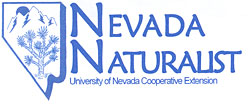 Nevada Naturalist – The Nevada Naturalist Program is an adult, environmental education program created to develop a corps of education naturalist volunteers to serve in southern Nevada. The program is a partnership between the University of Nevada Cooperative Extension (UNCE), Bureau of Land Management, National Park Service, Nevada Department of Wildlife, Fish and Wildlife Service, Nevada State Museum, University of Nevada, Las Vegas, and others. The Nevada Naturalist Program is offered in two sessions of instruction created by UNCE with experts in each field of study and with full advisement and review of the partners. Upon completion of the program, participants will be certified to engage in community education programs, environmental restoration and enhancement projects, and other activities deemed necessary by the partners.
Nevada Naturalist – The Nevada Naturalist Program is an adult, environmental education program created to develop a corps of education naturalist volunteers to serve in southern Nevada. The program is a partnership between the University of Nevada Cooperative Extension (UNCE), Bureau of Land Management, National Park Service, Nevada Department of Wildlife, Fish and Wildlife Service, Nevada State Museum, University of Nevada, Las Vegas, and others. The Nevada Naturalist Program is offered in two sessions of instruction created by UNCE with experts in each field of study and with full advisement and review of the partners. Upon completion of the program, participants will be certified to engage in community education programs, environmental restoration and enhancement projects, and other activities deemed necessary by the partners.
![]() New Hampshire Coverts Project – The New Hampshire Coverts Project trains volunteers to promote wildlife habitat conservation and forest stewardship.
New Hampshire Coverts Project – The New Hampshire Coverts Project trains volunteers to promote wildlife habitat conservation and forest stewardship.
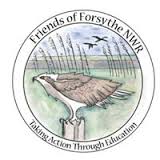 New Jersey Master Naturalist Program – The Richard Stockton College of New Jersey, the Edwin B. Forsythe National Wildlife Refuge, and other regional environmental organizations offer a program to train New Jersey Volunteer Master Naturalists (VMNs). The 40-hour certificate program is based on a national model, currently offered in more than 20 states, to develop volunteer citizen stewards of natural resources through science-based conservation, education and service programs.
New Jersey Master Naturalist Program – The Richard Stockton College of New Jersey, the Edwin B. Forsythe National Wildlife Refuge, and other regional environmental organizations offer a program to train New Jersey Volunteer Master Naturalists (VMNs). The 40-hour certificate program is based on a national model, currently offered in more than 20 states, to develop volunteer citizen stewards of natural resources through science-based conservation, education and service programs.
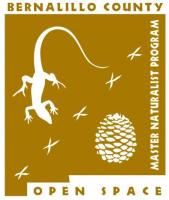 New Mexico Master Naturalist Program – The Bernalillo County Open Space Master Naturalist Program aims to instill the pursuit of life‐long learning and promote environmental stewardship. Participants are activity engaged through education and service dedicated to the beneficial management of natural resources on Open Space properties. Taxonomic groups: Flowering Plants, Non-flowering Plants, Birds, Mammals, Reptiles, Amphibians & Invertebrates.
New Mexico Master Naturalist Program – The Bernalillo County Open Space Master Naturalist Program aims to instill the pursuit of life‐long learning and promote environmental stewardship. Participants are activity engaged through education and service dedicated to the beneficial management of natural resources on Open Space properties. Taxonomic groups: Flowering Plants, Non-flowering Plants, Birds, Mammals, Reptiles, Amphibians & Invertebrates.
 New York Master Naturalist Program – The Master Naturalist Program is a high-quality, science-based training program designed to teach adults about New York’s natural resources, empowering them to educate others and participate in on-the-ground conservation management projects. Also see the Quality Parks Master Naturalist Program.
New York Master Naturalist Program – The Master Naturalist Program is a high-quality, science-based training program designed to teach adults about New York’s natural resources, empowering them to educate others and participate in on-the-ground conservation management projects. Also see the Quality Parks Master Naturalist Program.
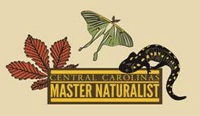 North Carolina Naturalist -The Blue Ridge Naturalist Certificate Program offers classes, field studies and workshops designed to provide residents of Western North Carolina with an opportunity to learn more about the natural world and cultural heritage of our mountains. Through the Arboretum’s Adult Education curriculum, programs in a variety of topics are available throughout the year. Interested in a more comprehensive experience? The Blue Ridge Naturalist Certificate of Merit program may be for you! This 240 hour curriculum includes a series of core courses on such topics as ecology, botany, geology and plant identification as well as elective programs in animals, lichens, insects, etc. Click on the links below for more specific information. Also see: Central Carolina Master Naturalist.
North Carolina Naturalist -The Blue Ridge Naturalist Certificate Program offers classes, field studies and workshops designed to provide residents of Western North Carolina with an opportunity to learn more about the natural world and cultural heritage of our mountains. Through the Arboretum’s Adult Education curriculum, programs in a variety of topics are available throughout the year. Interested in a more comprehensive experience? The Blue Ridge Naturalist Certificate of Merit program may be for you! This 240 hour curriculum includes a series of core courses on such topics as ecology, botany, geology and plant identification as well as elective programs in animals, lichens, insects, etc. Click on the links below for more specific information. Also see: Central Carolina Master Naturalist.
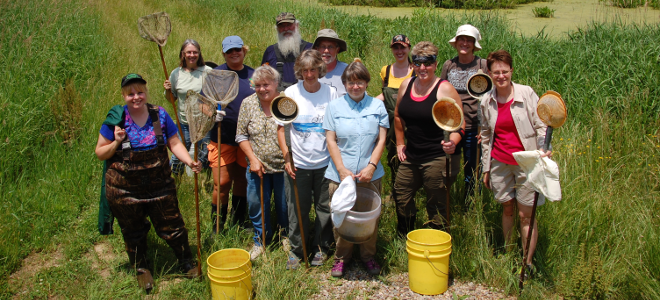 Ohio Certified Volunteer Naturalist – The OCVN program is a research-based education program that emphasizes hands-on natural resource and enironmental education coupled with volunteer service. Participants in the OCVN program receive 40 hours of combined classroom and field instruction. Upon completing the instructional hours, the participants provide 40 hours of volunteer service the first year twenty hours in subsequent years. Education programs and volunteer service coordination are provided through local chapters.
Ohio Certified Volunteer Naturalist – The OCVN program is a research-based education program that emphasizes hands-on natural resource and enironmental education coupled with volunteer service. Participants in the OCVN program receive 40 hours of combined classroom and field instruction. Upon completing the instructional hours, the participants provide 40 hours of volunteer service the first year twenty hours in subsequent years. Education programs and volunteer service coordination are provided through local chapters.
![]() Oklahoma Master Naturalists – Do you love the sound of bird songs and want to know who’s singing? Do you want to know how to identify native plants and use them in your landscape to attract birds and butterflies? Do you love nature and want to learn more about natural resources right here in Oklahoma? Then join us as a member of the Oklahoma Master Naturalists! We are a group of volunteers dedicated to learning about and preserving Oklahoma’s rich biological diversity and sharing this knowledge through education, outreach, and service within our communities.
Oklahoma Master Naturalists – Do you love the sound of bird songs and want to know who’s singing? Do you want to know how to identify native plants and use them in your landscape to attract birds and butterflies? Do you love nature and want to learn more about natural resources right here in Oklahoma? Then join us as a member of the Oklahoma Master Naturalists! We are a group of volunteers dedicated to learning about and preserving Oklahoma’s rich biological diversity and sharing this knowledge through education, outreach, and service within our communities.
 Oregon Master Naturalist Program – The Oregon Master Naturalist Program is for people interested in Oregon’s natural history and natural resources management who want to dedicate their time as volunteers. Over 40 states nationwide have similar programs. The Program provides an opportunity to learn about natural resources through the study of scientifically sound information: the natural history of plants, animals, habitats, and geology, the history and processes of landscape change, as well as the most relevant topics in present-day sustainable natural resource management. Participants volunteer for natural resources programs, agencies, organizations, and other groups in their communities.
Oregon Master Naturalist Program – The Oregon Master Naturalist Program is for people interested in Oregon’s natural history and natural resources management who want to dedicate their time as volunteers. Over 40 states nationwide have similar programs. The Program provides an opportunity to learn about natural resources through the study of scientifically sound information: the natural history of plants, animals, habitats, and geology, the history and processes of landscape change, as well as the most relevant topics in present-day sustainable natural resource management. Participants volunteer for natural resources programs, agencies, organizations, and other groups in their communities.
 Pennsylvania Master Naturalist – A statewide partnership initiative that aims to connect people with their local ecosystems through intensive natural science training and local conservation service work. It is a venture directed toward developing a local corps of “master volunteers and service providers” to offer education, outreach and service dedicated to the understanding and management of natural areas within their communities. Pennsylvania Master Naturalist is designed to teach adult participants about the natural history and ecology of Pennsylvania’s diverse ecoregions. Initially, students will receive 55 hours of classroom and field instruction. Teaching involves outdoor activities, PowerPoint slides, suggested resources including a comprehensive training manual developed for the course, and interaction with other students and instructors. Upon graduating from training, Pennsylvania Master Naturalists are expected to complete 30 hours of volunteer service in their first year and 20 hours annually thereafter along with annual continuing education requirements. Also see HERE.
Pennsylvania Master Naturalist – A statewide partnership initiative that aims to connect people with their local ecosystems through intensive natural science training and local conservation service work. It is a venture directed toward developing a local corps of “master volunteers and service providers” to offer education, outreach and service dedicated to the understanding and management of natural areas within their communities. Pennsylvania Master Naturalist is designed to teach adult participants about the natural history and ecology of Pennsylvania’s diverse ecoregions. Initially, students will receive 55 hours of classroom and field instruction. Teaching involves outdoor activities, PowerPoint slides, suggested resources including a comprehensive training manual developed for the course, and interaction with other students and instructors. Upon graduating from training, Pennsylvania Master Naturalists are expected to complete 30 hours of volunteer service in their first year and 20 hours annually thereafter along with annual continuing education requirements. Also see HERE.
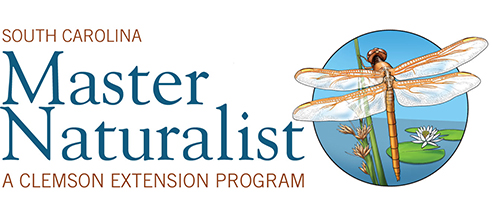 South Carolina Master Naturalist Program – A statewide corps of volunteers providing education, outreach, and service dedicated to the beneficial management of natural resources and natural areas within their communities. Interested South Carolinians become Master Naturalists through training and volunteer service. Individuals who participate in the program bring diverse skills and experiences that contribute time, energy and ideas in maintaining the native eco-systems throughout the South. After receiving training, Master Naturalists may participate in many different types of volunteer activities. These might include assisting in a nature outreach program at a park, museum, nature center or school; assisting a scientist collecting bird census data; collecting data on water quality or many others.
South Carolina Master Naturalist Program – A statewide corps of volunteers providing education, outreach, and service dedicated to the beneficial management of natural resources and natural areas within their communities. Interested South Carolinians become Master Naturalists through training and volunteer service. Individuals who participate in the program bring diverse skills and experiences that contribute time, energy and ideas in maintaining the native eco-systems throughout the South. After receiving training, Master Naturalists may participate in many different types of volunteer activities. These might include assisting in a nature outreach program at a park, museum, nature center or school; assisting a scientist collecting bird census data; collecting data on water quality or many others.
 Tennessee Naturalist Program – The Tennessee Naturalist Program (TNP) is an education training program designed to introduce the natural history of Tennessee to interested adults. The program has several chapters located across the state that offer training and environmental education opportunities to interested individuals. Graduates join a critical corps of Tennessee Naturalist volunteers providing education, outreach and service dedicated to the appreciation, understanding and beneficial management of natural resources and natural areas within their communities. Tennessee State Parks hosts two Tennessee Naturalist Program chapters: one at Paris Landing State Park and the other at Cumberland Mountain State Park.
Tennessee Naturalist Program – The Tennessee Naturalist Program (TNP) is an education training program designed to introduce the natural history of Tennessee to interested adults. The program has several chapters located across the state that offer training and environmental education opportunities to interested individuals. Graduates join a critical corps of Tennessee Naturalist volunteers providing education, outreach and service dedicated to the appreciation, understanding and beneficial management of natural resources and natural areas within their communities. Tennessee State Parks hosts two Tennessee Naturalist Program chapters: one at Paris Landing State Park and the other at Cumberland Mountain State Park.
 Texas Master Naturalist – The Mission: To develop a corps of well-informed volunteers to provide education, outreach, and service dedicated to the beneficial management of natural resources and natural areas within their communities for the State of Texas.
Texas Master Naturalist – The Mission: To develop a corps of well-informed volunteers to provide education, outreach, and service dedicated to the beneficial management of natural resources and natural areas within their communities for the State of Texas.
The Need: Many communities and organizations rely on such citizen volunteers for implementing youth education programs; for operating parks, nature centers, and natural areas; and for providing leadership in local natural resource conservation efforts. In fact, a short supply of dedicated and well-informed volunteers is often cited as a limiting factor for community-based conservation efforts.
 Utah Master Naturalist – The Utah Master Naturalist Program is a certification program developed by Utah State University Extension with the partnership of more than 25 other organizations in Utah. The mission of the Utah Master Naturalist Program is to develop well-informed volunteers and professionals who provide education, outreach, and service promoting stewardship of natural resources within their communities. The program consists of 40 hours of training, with at least 50% of the time spent in the field. Registration fees are $175, and a limited number of scholarships are available.
Utah Master Naturalist – The Utah Master Naturalist Program is a certification program developed by Utah State University Extension with the partnership of more than 25 other organizations in Utah. The mission of the Utah Master Naturalist Program is to develop well-informed volunteers and professionals who provide education, outreach, and service promoting stewardship of natural resources within their communities. The program consists of 40 hours of training, with at least 50% of the time spent in the field. Registration fees are $175, and a limited number of scholarships are available.
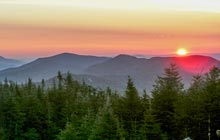 Vermont Field Naturalist – The Field Naturalist and Ecological Planning programs bring motivated students to the intersection of the natural environment and human nature. Our two-year graduate curriculum integrates science, fieldwork, critical thinking and public communications to produce leaders in environmental policy, land stewardship, research, conservation and education. Whether they go on to work in boardrooms, backyards or bogs, we give graduates the skills and dexterity to understand and explain the natural world – and to solve its problems.
Vermont Field Naturalist – The Field Naturalist and Ecological Planning programs bring motivated students to the intersection of the natural environment and human nature. Our two-year graduate curriculum integrates science, fieldwork, critical thinking and public communications to produce leaders in environmental policy, land stewardship, research, conservation and education. Whether they go on to work in boardrooms, backyards or bogs, we give graduates the skills and dexterity to understand and explain the natural world – and to solve its problems.
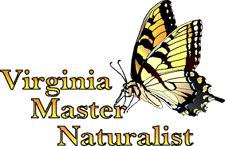 Virginia Master Naturalists – The program is celebrating its 10th year! A lot has been accomplished over the past decade through a wonderful corp of trained volunteers who go out into communities across the Commonwealth to share their knowledge with schools, clubs, and individuals, instilling respect and a sense of stewardship for Virginia’s natural resources. The Virginia Master Naturalist program is supported by Virginia Cooperative Extension, Virginia Department of Conversation and Recreation, Virginia Department of Environmental Quality, Virginia Department of Forestry, Virginia Museum of Natural History. The program is based within the Department of Forestry and Environmental Conservation at Virginia Tech. The state organization coordinates the 30 different Virginia Chapters that have provided over a half-million hours of volunteer service, citizen science projects, and outreach education.
Virginia Master Naturalists – The program is celebrating its 10th year! A lot has been accomplished over the past decade through a wonderful corp of trained volunteers who go out into communities across the Commonwealth to share their knowledge with schools, clubs, and individuals, instilling respect and a sense of stewardship for Virginia’s natural resources. The Virginia Master Naturalist program is supported by Virginia Cooperative Extension, Virginia Department of Conversation and Recreation, Virginia Department of Environmental Quality, Virginia Department of Forestry, Virginia Museum of Natural History. The program is based within the Department of Forestry and Environmental Conservation at Virginia Tech. The state organization coordinates the 30 different Virginia Chapters that have provided over a half-million hours of volunteer service, citizen science projects, and outreach education.
Washington Master Naturalist Programs
– City of Bellevue
– Lake Washington Horticulture
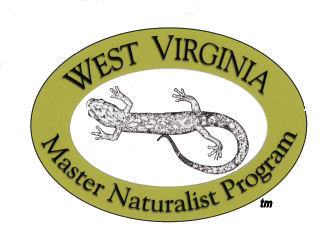 West Virginia Master Naturalist Program – The mission of the West Virginia Master Naturalist Program is to train interested people in the fundamentals of natural history, nature interpretation and teaching, and to instill in them an appreciation of the importance of responsible environmental stewardship. The program will also provide a corps of highly qualified volunteers to assist government agencies, schools, and non-government organizations with research, outdoor recreation development, and environmental education and protection.
West Virginia Master Naturalist Program – The mission of the West Virginia Master Naturalist Program is to train interested people in the fundamentals of natural history, nature interpretation and teaching, and to instill in them an appreciation of the importance of responsible environmental stewardship. The program will also provide a corps of highly qualified volunteers to assist government agencies, schools, and non-government organizations with research, outdoor recreation development, and environmental education and protection.
 Wisconsin Master Naturalist – The Wisconsin Master Naturalist Program (WIMN) is developing a corps of well-informed citizens dedicated to conservation education and service within their communities. Similar Master Naturalist, train-the-trainer efforts are being offered in 48 states across the country. The WIMN Volunteer Training Course provides 40 hours of coursework in natural history, interpretation, and conservation stewardship. Courses combine classroom instruction with field experiences and are taught by professional natural resources educators and scientists, who are trained to deliver the WIMN course.
Wisconsin Master Naturalist – The Wisconsin Master Naturalist Program (WIMN) is developing a corps of well-informed citizens dedicated to conservation education and service within their communities. Similar Master Naturalist, train-the-trainer efforts are being offered in 48 states across the country. The WIMN Volunteer Training Course provides 40 hours of coursework in natural history, interpretation, and conservation stewardship. Courses combine classroom instruction with field experiences and are taught by professional natural resources educators and scientists, who are trained to deliver the WIMN course.
 Canada Master Naturalist
Canada Master Naturalist
– Ontario Master Naturalist Program – Lakehead University
– Ontario Master Naturalist Program – Ontario Nature
– City of Edmonton
——————————–


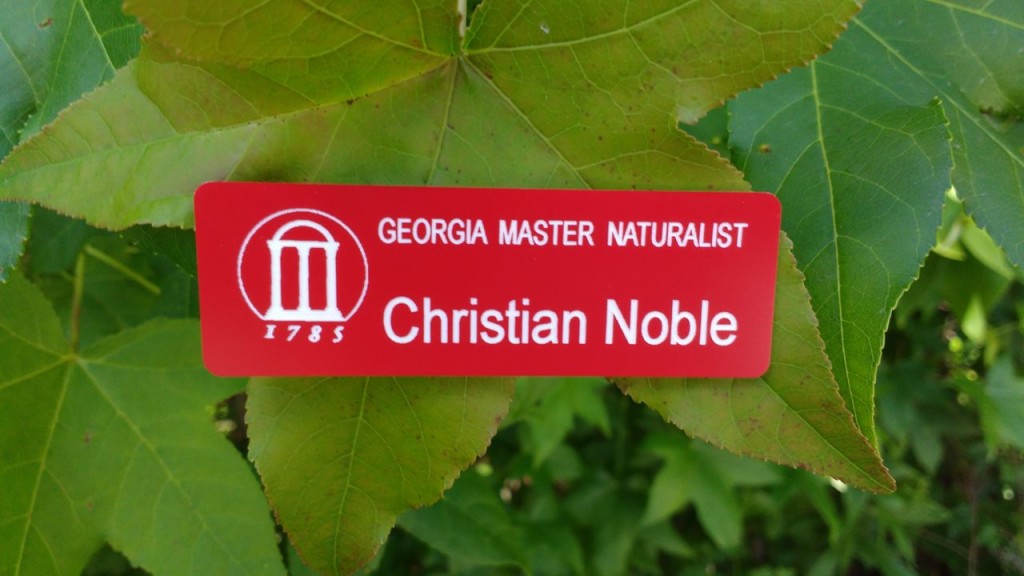
3 Responses to Become a Master Naturalist